#caucasus beetle
Photo
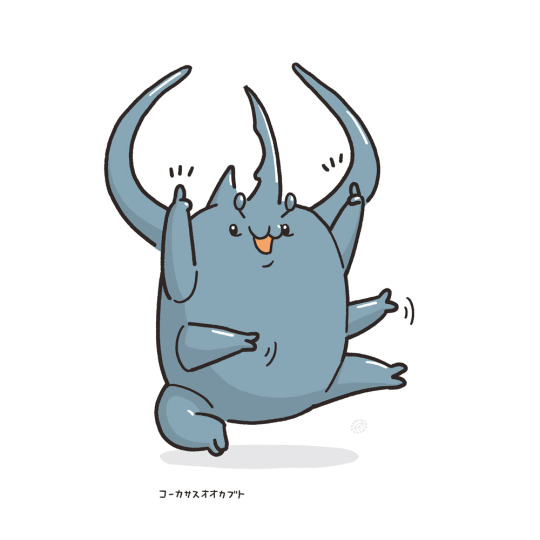
so good!!
183 notes
·
View notes
Text

Those who will inherit the earth
#original character#oc#long haired men#homunculus#cw: insects#centipede#kabutomushi#hercules beetle#centauros beetle#stag beetle#dragonfly#caucasus beetle#leeches#traditional art#sketch#Roger's Art#purple emperor butterfly#cockroach
13 notes
·
View notes
Text
Brave In! Kyoryu Change!
Fire!
Dinosaurs... Plus humans! Only 10 years ago did the Brave Team from the Cretaceous Era come to the Heisei Era to protect the world! Now, in the Reiwa Era, six kings from the planet of Tikyuu arrive for... reasons yet to be made apparent!
In honor of the Zyuden Sentai Kyoryuger's most momentous anniversary... I'm gonna have to... keep... catching up with... another show. One that they're in though, I can promise you! It's going to get wild! Just try to stop us!
Listen and be amazed!
Spoilers, I guess...
-Yeah, I'm real sad I missed out on this one.
-Where the fuck are we?
-I don't think the PM's gonna listen to you guys.
-Man, Dugded was right, this place sucks
-Soujiiiiiiiiiii! How you doin', bud?
-"Ohgai Busou!"
-Good thing God Kuwagata's
-Wait
-Ohhhhhhhhhh, that might be a problem.
-CHESTOOOOOOO!
-Junior Prince.
-Ah, there's Candelilla and Luckyuro!
-How's Nobuharu doing, eh? Do we still need shielding from his puns?
-"Be nicer to your sword, you little demon."
-"Er... please pardon me, but if you're a Prince..."
-Oh
-Oh, you're serious
-There they be
-The Zyudenryu...
-Oh hey Kaguragi!
-Omg Gentle hiiiiiiiiii!!!!
-At least you're having a nice day.
-"Umai~!"
-DEBOSS SPOTTED
-Oh, he's
-He's a Megazord of the Deboss generals, I see.
-See, there's Aigaron!
-Dogold there.
-Hot damn, Gentle!
-Hatch It!
-...H-Hatch It?
-"Mom?"
-NOBUUUUUU
-Kyoryuger?
-Ok, byeeeeeee!
-Oooooh~! Shade~!
-The pictures are in the same style as the Kingohger's prophecy... Hmm...
-Hi, Ian. I see you're still making friends.
-Two thousand years ago, even back then did the Kyoryugers run wild.
-"So, you're like... actually a king?"
-I see we don't
-DUGDED????
-Holy shit, he overrode a good ending.
-Welcome to Japan, bitches.
-I see, a voice only cameo from Daigo and Utsusemimaru.
-"So like... wanna tell us where we are~?"
-Oh I forgot
-Time travel.
-At least Yanma's having fun :)
-Ol' Prince is off to have fun training too~!
-Deboss, you're looking
-Quite silvery
-And beetle-y too...
-Laid the fuck out
-They stole our fucking dinosaurs
-Our Gods are far beyond us
-"Time to make the prince awaken!"
-Jeramie's also having a lovely day.
-Hot damn! Yanma figured it out right quick
-"I claim Japan in the name of Shugoddam!"
-Hoooo!
-Yeah, this guy's Daigo's successor alright.
-"Of course I cheat! I'm doing it right..."
-Give your sword a kiss and start over.
-"Hmph."
-YEAHHHHH
-Well done!
-Kuwagon~!
-That's our Gira for you.
-Souji :)
-"C'mon Kingy. Make my day."
-Brave In!
-Kyoryu Change!
-Bust it down, boy!
-Kiiiiing~!
-Hooooo!
-Hot damn!
-Gonna get wild!
-This is so sick
-God, Himeno's absolutely serving
-King Vomola Mucho!
-Head hurty
-Oh, nope, couldn't be that simple.
-NOOOO SOUJIIII
-Ah, he's fine
-Amyyyyyyy!
-Whaddup, girl, we missed you.
-"Hey so uh..."
-Earth...
-Tikyu... Chikyuu...
-What's the difference?
-JERAMIE'S PART SPACE ALIEN????
-Hot damn... His dad pulled!
-Unearned bravery'll do that to you, Deboss.
-Oh, skipping the title sequence, okay!
-Despair's our big enemy here.
-...Rita......
-Rally up our kingdom!
-"Oh???"
-Earth drip!
-Yuko-chan... Rika-chan!
-Suzume-san....
-"This is peak."
-Moffun...?
-AAAAAAH
-This feels good
-Music
-That's our key, here, huh?
-Welcome to Earth, bitch!
-We just had a whole other Earth out there, huh?
-DAD????
-"I learned from my Dad, after all."
-A Space Ship.
-Okay.
-Cool.
-Thank you for that, ancestors.
-"I-I take regal responsibility for Prince!"
-Gabutyraaaaaa!
-Amyyyyyy!
-Mom~!
-Have I mentioned how cool it is, applying similar principles to crossover power sets?
-Thanks, Dad!
-From across the universe, Castle Caucasus Kabuto answers the King's call!
-Nobuharu!!!
-Candy and Nobby, 2gether4ever!
-Awwwwww :)
-"Oh! I see~! That's wonderful!"
-Jeramie :D
-God, I love Himeno's Kikaider jean jacket.
-Well, you tried Ian.
-nods
-Good taste, all around.
-Where is our earthly melody?
-OHhhhhhhh, of course!
-That's a good reason to skip the intro.
-Yeaaaaah!!!!
-Bravery Restored.
-Ohgai Busou!
-Brave In!
-Fire!
-hehehehehehehehehe
-Muteki no Sentai~!
-Pincering Brave! King Kyoryu Red!
-Bullet Brave! Kyoryu Black!
-Armored Brave! Kyoryu Blue!
-Slashing Brave! Kyoryu Green!
-Horned Brave! Kyoryu Pink!
-Strongest and bravest! Zyuden Sentai! Kyoryuger!
-Time and space are relative concepts anyway.
-Absolutely wildin'.
-YEAAAAAAAH
-This is worth everything.
-Brave In!
-Chomp those batteries!
-Oh that's cute, even King-Ohger's sambaing down.
-Goodbye, Deboss!
-One day...
-Consider yourself on the right path, Prince!
-Daigoro...
-Amy and Daigo fuck.
-Farewell... I'm gonna miss those bug guys.
-...wait a second...
-OHHHHH THAT'S SO CUTE THEY'RE DOIN THE DANCE
-YEAAAAAAAAAH
-Oh we're back
-OH WE'RE STILL ON THE DINOSAURS
-SHUGO MASK????
-OH WELL FUCK ME, I'M NOT GONNA JUST LEAVE IT OFF THERE AM I?
-Deboss...
-Our stupid kings are now headed home.
-"Wi-fi's back on."
-A loud screech is the last thing you'd ever wanna hear on a spaceship.
-Oh, Yanma, you
-You brought a little souvenir, eh?
-Dugded is just Discord if he actually was a supervillain.
-Hello, Shugo Mask.
-"That's it, I'm going to bed."
-The kings are back, baby!
-...oh God, I hope relativity isn't coming back to bite us.
-"Booooooooooooo!"
-I swear, Hat Guy's talking like Josh Peck.
-...Hat Guy, Jesus, it has been way too long.
-His names Goroge, I know that!
-"Free jewelry for life, baby~! That's the rule of Dugded for you!"
-"Oh, oops."
-I guess most of our modern science survived out in Space.
-"Kill a king... and you get to be one too!"
-Damn, Yanma was gonna throw down.
-THEY JUST WENT OFF SCREEN, HOW'D YOU LOSE THEM
-Takes greed to know greed.
-New King?????
-Suzume-sama????
-Where is she?
-"Oh come now..."
-Alright, kinglings, let's dish out some church and state!
-DINOSAUR POWER
-Rulin' like it's 70 Million BC!
-Oh Kohgane, thank god
-Et tu, Boone?
-Shugo Kamen...
-He reversed Man in the Iron Masked us.
-"Oh well, peace is good :)"
-Left spinning their wheels in despair.
-C'mon, King Weiner!
-They shot him...
-Oh hi~!
-He's so small!
-He speaks fluent spirit!
-"Now... with the Power of the Dinosaurs! It's time for me to lead a charge! It's Morphin' Time! Energize! Unleash the power!"
-It was a much different effect, Gira had noticed, compared to King-Ohger. But if Minityra was willing to provide his aid, how could he refuse~? Breaking it down would be no small feat, but by the Gods, he'd simply have to!
-Sorry, Fly Boy! No amount of money's gonna let you step up to the King~!
-Good job~!
-Suzume's totally taken over.
-"Shut up, weiner! You're not the boss here!"
-"Oh noooooooooo~! Save me, my beloved Shugo Mask~!"
-Racules.
-Who else?
-How do you have a voice filter, your mouth isn't even covered.
-Ho man...
-Those blasted space bugs.
-There he is.
-Big Brother Racules.
-Hooo...
-You are one captivating son of a bitch.
-Racules Husty. Tremble at his name.
-Hooo....
-That's gonna be all from me tonight! I am...
-Quite tired, I'm just gonna lie down~! See you~!
#Rejoice O Swarming Evil! You're My King!#zyuden sentai kyoryuger#ohsama sentai kingohger#super sentai#kingohger#kyoryuger
6 notes
·
View notes
Text
Let me tell you about winds.
"There is a whirlwind in southern Morocco, the aajej, against which the fellahin defend themselves with knives. There is the africo, which has at times reached into the city of Rome. The alm, a fall wind out of Yugoslavia. The arifi, also christened aref or rifi, which scorches with numerous tongues. These are permanent winds that live in the present tense. There are other, less constant winds that change direction, that can knock down horse and rider and realign themselves anticlockwise. The bist roz leaps into Afghanistan for 170 days--burying villages. There is the hot, dry ghibli from Tunis, which rolls and rolls and produces a nervous condition. The haboob--a Sudan dust storm that dresses in bright yellow walls a thousand metres high and is followed by rain. The harmattan, which blows and eventually drowns itself into the Atlantic. Imbat, a sea breeze in North Africa. Some winds that just sigh towards the sky. Night dust storms that come with the cold. The khamsin, a dust in Egypt from March to May, named after the Arabic word for 'fifty,' blooming for fifty days--the ninth plague of Egypt. The datoo out of Gibraltar, which carries fragrance. There is also the ------, the secret wind of the desert, whose name was erased by a king after his son died within it. And the nafhat--a blast out of Arabia. The mezzar-ifoullousen--a violent and cold southwesterly known to Berbers as 'that which plucks the fowls.' The beshabar, a black and dry northeasterly out of the Caucasus, 'black wind.' The Samiel from Turkey, 'poison and wind,' used often in battle. As well as the other 'poison winds,' the simoom, of North Africa, and the solano, whose dust plucks off rare petals, causing giddiness. Other, private winds. Travelling along the ground like a flood. Blasting off paint, throwing down telephone poles, transporting stones and statue heads. The harmattan blows across the Sahara filled with red dust, dust as fire, as flour, entering and coagulating in the locks of rifles. Mariners called this red wind the 'sea of darkness.' Red sand fogs out of the Sahara were deposited as far north as Cornwall and Devon, producing showers of mud so great this was also mistaken for blood. 'Blood rains were widely reported in Portugal and Spain in 1901.' There are always millions of tons of dust in the air, just as there are millions of cubes of air in the earth and more living flesh in the soil (worms, beetles, underground creatures) than there is grazing and existing on it. Herodotus records the death of various armies engulfed in the simoom who were never seen again. One nation was 'so enraged by this evil wind that they declared war on it and marched out in full battle array, only to be rapidly and completely interred."
- The English Patient, Michael Ondaatje
2 notes
·
View notes
Photo


Yep, the castle is a robot all right.
Also the Kamen Rider Kabuto movie called, it wants its golden caucasus beetle motif back.
Could have at least made it a stag beetle like the actual golden stag beetle species, which is the only actual golden beetle species. Or maybe go the Digimon or Jojo’s routes and make it a Hercules or scarab beetle...
#ousama sentai kingohger#ohsama sentai kingohger#kingohger#kuwagata ohger#KuwagataOhger#Gira Husty#Racules Husty#ohkuwagataohger#Ohkuwagata Ohger
3 notes
·
View notes
Photo


Pallas's cat (Otocolobus manul), also known as the manul, is a small wild cat native to Central Asia, and can be found throughout the Caucasus, Iranian Plateau, Hindu Kush, parts of the Himalayas, Tibetan Plateau, the Altai-Sayan region and South Siberian Mountains. Here they inhabit montane grasslands, shrublands, rocky outcrops, and sheltered ravines, they are crepuscular solitary felines which use caves, rock crevices and marmot burrows as shelter. Pallas’s cat feeds primarily upon rodents, shrews, pikas, hares, rabbits, and passerine birds as well as occasionally carrion, beetles, lizards, grasshoppers, and freshwater fish. Pallas’s cat are themselves eaten by snow leopards, wolves, asian leopards, and eagles. Reaching around 26 – 38 inches (67-96cms) in length and 5-10lbs (2.5 -4.5kg) in weight, the Pallas’s cat is a small stocky wild cat which sports rounded ears that are set low on the sides of the head and a long bushy tail. Its thick shaggy coat changes color depending on the season, in winter being a frosted gray and in spring a gray/fox-red. The pupils of its large eyes, unlike those of other small cats, contract to small circles instead of slits. The breeding season lasts from September to December and after a 66-75 day pregnancy a mother pallas cat will give birth to 2-6 kittens which will stay with there mother until around 4-5 months old. Under ideal conditions a pallas’s cat will reach sexual maturity at around 1 year of age and may live upwards of 11 years.
4 notes
·
View notes
Text
Osip & Ioseb
I tried my hand at translating Osip Mandelshtam's 1936 poem "Within a mountain, dormant, dwells an idol..." after seeing an excerpt of it translated by Donald Rayfield. Though less obviously about Stalin than the "Stalin Epigram" ("We live, deaf to the land beneath us"), I do think this one is also, well, about Stalin. Disclaimer: I am a rank amateur and my expansion definitely leans heavily on Rayfield's ideas.
Within a mountain, dormant, dwells an idol
In chambers spacious, practical, and bright
And from his neck drip amulets like beads of oil
That guard him from the dream-tides of the night
As a lad, he had a peacock playmate
He was fed on rainbows straight from India
They gave him milk of rosy clay to wash them down
And never spared him beetle-red cochineal.
His sleepy bones he gathers in a bundle now
The knees, the arms, the shoulders humanize,
He smiles with his serenest of all mouths as
His bones begin to think, his brow to feel,
And he attempts to recollect his human guise.
Notes below the cut.
I tried to preserve as many rhymes as I could, but I fudged the syllable count a whole hell of a lot to make it scan better in English (to my ear).
Here is the Russian original with the rhyme scheme (as I figure it) and syllable count, so you can try it for yourself:
[A, -ir ending] Внутри горы бездействует кумир [10 syllables]
[B, -ikh] В покоях бережных, безбрежных и счастливых, [13 syllables]
[A, -ir] А с шеи каплет ожерелий жир, [9 syllables]
[C, -ii] Оберегая сна приливы и отливы. [13 syllables]
[D, -in] Когда он мальчик был и с ним играл павлин, [12 syllables]
[C, -ii] Его индийской радугой кормили, [11 syllables]
[D, -in] Давали молока из розоватых глин [12 syllables]
[C, -ii] И не жалели кошенили. [9 syllables]
[E, -om] Кость усыпленная завязана узлом, [12 syllables]
[C, -ii] Очеловечены колени, руки, плечи, [14 syllables]
[E, -om] Он улыбается своим тишайшим ртом, [12 syllables]
[E, -om] Он мыслит костию и чувствует челом [11 syllables]
[C, -ii] И вспомнить силится свой облик человечий. [13 syllables]
I used the same "humanize"/"human guise" pair as Rayfield, because I just can't think of a better way to translate очеловечены and make it rhyme with облик человечий in English.
At first I thought "А с шеи каплет ожерелий жир / Оберегая сна приливы и отливы" referred to buoyant double chins that would keep our idol afloat on the ebb and flow/high and low tides of sleep...but I believe the protection offered by his jewelry is more like that of a fairy-circle of stones placed around a sandcastle to protect it from encroaching surf.
Re: Stalin: the word for mountain used here, гори, is a homophone for ol' Joey D's hometown, Gori, from the Georgian word gora, also meaning mountain. Peacocks and the red dye cochineal are also popularly associated with the Caucasus. This poem was written while Mandelshtam was exiled in Voronezh, almost exactly two years before his death in a GULAG system transit camp.
I would welcome input from native Russian speakers, but the most compelling thing about this poem to me is that it seems to be about the alchemical process of deliberately turning a human being into a god. There's an implicit "they" in the middle stanza who are feeding this boy various brightly pigmented inedible objects in order to turn him into an idol/god, кумир.
Here are some published English translations:
Ilya Bernstein, 2014:
In idleness inside a mountain an idol dwells
In protective, boundless, idyllic chambers,
While necklaces fall from his neck like drops of fat,
Protecting the ebb and flow of his slumber.
A peacock played with him when he was a boy
And he was fed on an Indian rainbow
And given milk out of rose-colored clay
And had no lack of cochineal.
Somnolent bone has been tied in a knot.
Hands, knees, and shoulders have been made human.
He smiles with his extremely quiet mouth.
He thinks it in his bones, and feels it in his head,
And struggles to recall his human figure.
Andrew Davis, 2016:
Deep in the mountain the idol rests
In sweet repose, infinite and blest,
The fat of necklaces dripping from his neck
Protects his dreams of flood tide and of slack.
As a boy, he buddied with a peacock,
They gave him rainbow of India to eat
And milk in a pink clay dish,
And didn’t stint the cochineal.
Bone put to bed, locked in a knot,
Shoulders, arms, and knees made flesh,
He smiles with his own dead-silent lips,
Thinks with his bone, feels with his brow,
And struggles to recall his human countenance.
I have liked W.S. Merwin's translations of Mandelshtam in the past, but I can't seem to find his translation of this poem online.
0 notes
Text
Samson Goliath, based on Caucasus Beetle. Born with Great Power!
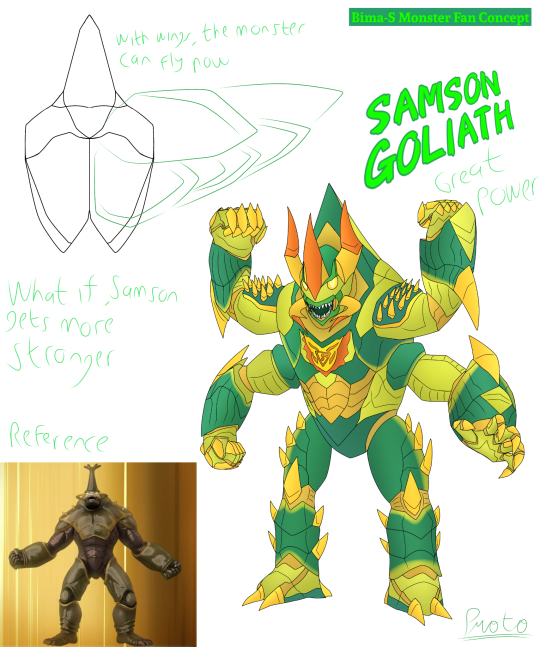
#bimasanimation#artists on tumblr#kaijin#kamen rider#Bima Satria Garuda#Satria Heroes#Bima S#BIMA sweep#Bima S Animation#Bima S Season 2#Fan concept
1 note
·
View note
Photo
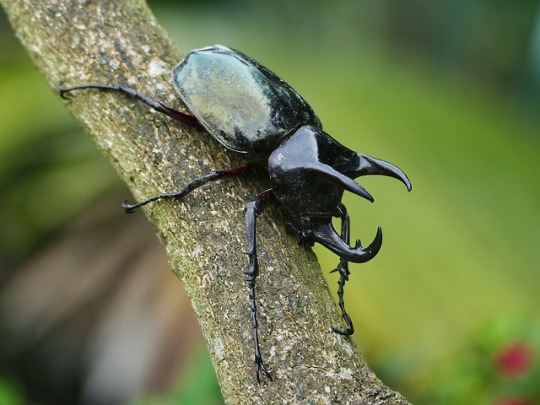
Wesentlich grösser ist dieses dreihornige Exemplar. Der Caucasus Beetle/Chalcosoma Caucasus
33 notes
·
View notes
Text
Caucasus changeling
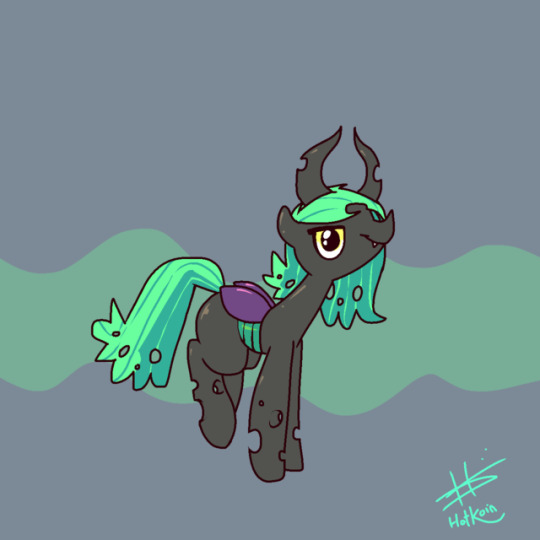
147 notes
·
View notes
Photo

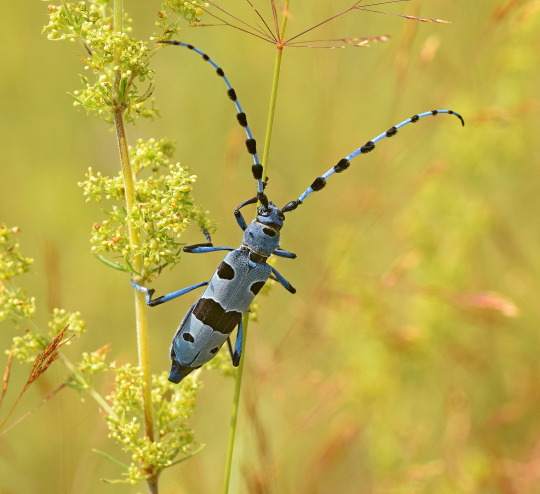
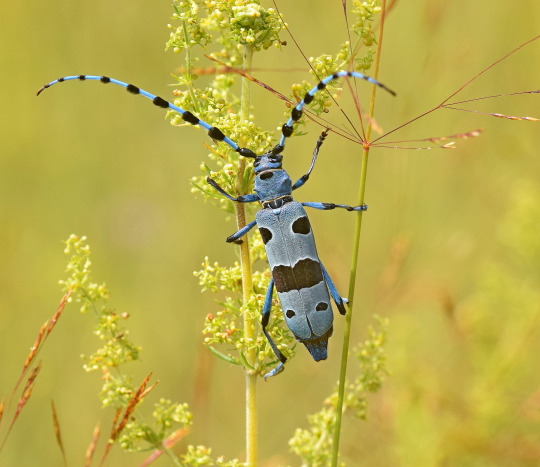

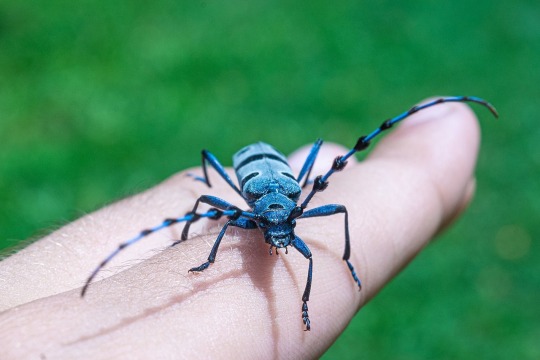
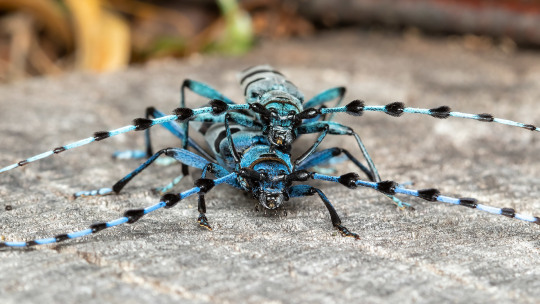
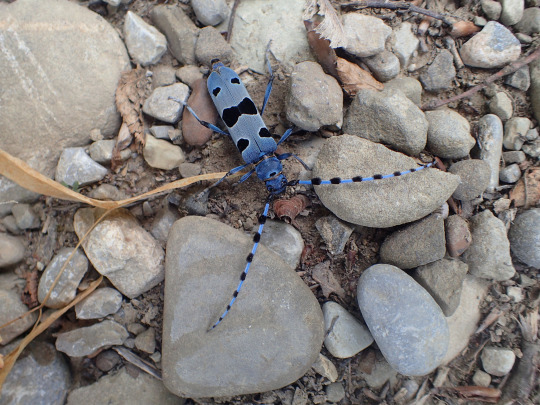
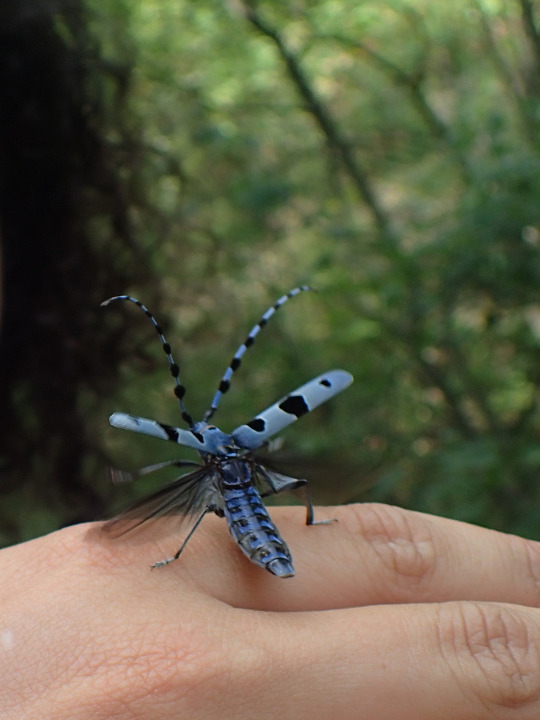
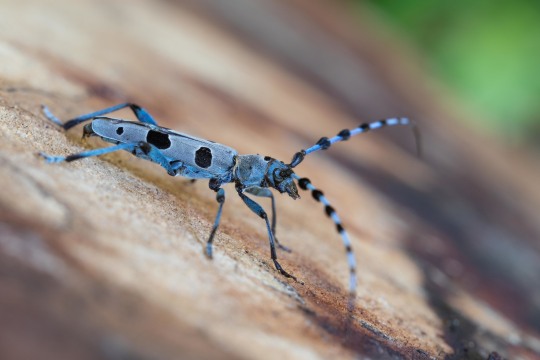
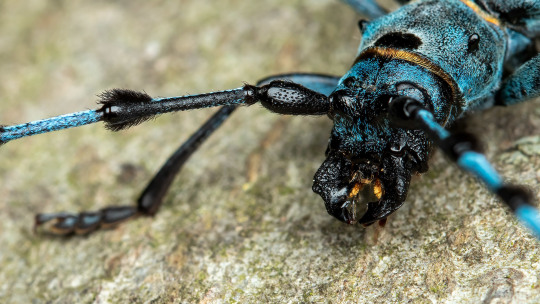
Alpine longhorn beetle aka Rosalia longicorn, Rosalia alpina, Cerambycidae
This species is found from the Cantabrian Mountains in Spain east through the Caucasus region. It is considered vulnerable due to habitat loss and is protected in a number of countries. Although striking in appearance, it is camouflaged well against its preferred host tree, the European beech:

Photos 1-3 by kostaszontanos, 4 by rogervila, 5 by lazar_zenit, 6 by per-hoffmann-olsen, 7-8 by matthieu_gauvain, 9 by martin_galli, 10 by per-hoffmann-olsen, and 11 by Franz Xaver
#animals#curators on tumblr#insects#bugs#beetle#longhorn beetle#alpine longhorn rosalia#rosalia longicorn#alpine longhorn#one nice bug
712 notes
·
View notes
Text
“There is a whirlwind in southern Morocco, the aajej, against which the fellahin defend themselves with knives. There is the africo, which has at times reached into the city of Rome. The alm, a fall wind out of Yugoslavia. The arifi, also christened aref or rifi, which scorches with numerous tongues. These are permanent winds that live in the present tense. There are other, less constant winds that change direction, that can knock down horse and rider and realign themselves anticlockwise. The bist roz leaps into Afghanistan for 170 days–burying villages. There is the hot, dry ghibli from Tunis, which rolls and rolls and produces a nervous condition. The haboob–a Sudan dust storm that dresses in bright yellow walls a thousand metres high and is followed by rain. The harmattan, which blows and eventually drowns itself into the Atlantic. Imbat, a sea breeze in North Africa. Some winds that just sigh towards the sky. Night dust storms that come with the cold. The khamsin, a dust in Egypt from March to May, named after the Arabic word for ‘fifty,’ blooming for fifty days–the ninth plague of Egypt. The datoo out of Gibraltar, which carries fragrance. There is also the secret wind of the desert, whose name was erased by a king after his son died within it. And the nafhat–a blast out of Arabia. The mezzar-ifoullousen–a violent and cold southwesterly known to Berbers as 'that which plucks the fowls.’ The beshabar, a black and dry northeasterly out of the Caucasus, 'black wind.’ The Samiel from Turkey, 'poison and wind,’ used often in battle. As well as the other 'poison winds,’ the simoom, of North Africa, and the solano, whose dust plucks off rare petals, causing giddiness. Other, private winds. Travelling along the ground like a flood. Blasting off paint, throwing down telephone poles, transporting stones and statue heads. The harmattan blows across the Sahara filled with red dust, dust as fire, as flour, entering and coagulating in the locks of rifles. Mariners called this red wind the 'sea of darkness.’ Red sand fogs out of the Sahara were deposited as far north as Cornwall and Devon, producing showers of mud so great this was also mistaken for blood. 'Blood rains were widely reported in Portugal and Spain in 1901.’ There are always millions of tons of dust in the air, just as there are millions of cubes of air in the earth and more living flesh in the soil (worms, beetles, underground creatures) than there is grazing and existing on it. Herodotus records the death of various armies engulfed in the simoom who were never seen again. One nation was 'so enraged by this evil wind that they declared war on it and marched out in full battle array, only to be rapidly and completely interred.”
— Michael Ondaatje
32 notes
·
View notes
Text
My friend told me there was a beetle she killed in her apartment and I asked her if it was cute and then geeked out as she described him to me.
#I love beetles#hercules beetles are so cool!#and rhinocerous beetles!!#and damn have you seen stag beetles??#Chalcosoma caucasus is the most amazing thing!!!#he got the legs#Oh and Atlas beetles#I love beetles so mcuh#my shelled children
12 notes
·
View notes
Text
Treat Your S(h)elf: A German Officer in Occupied Paris: The War Journals, 1941-1945 by Ernst Jünger (2019)
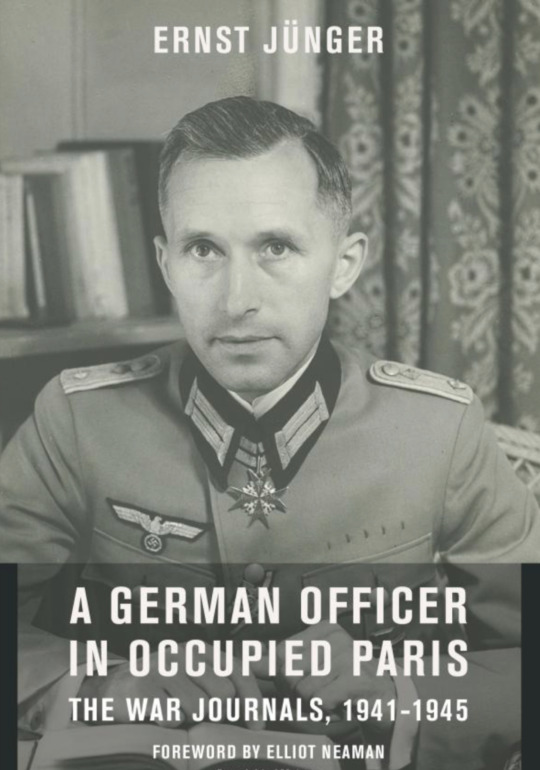
Keeping a journal: The short entries are often as dry as instant tea. Writing them down is like pouring hot water over them to release their aroma.
- Ernst Jünger, A German Officer in Occupied Paris: The War Journals, 1941-1945 (2019)
Paris is very much my home these days and so I enjoy reading about the history of this beautiful city. It is difficult to live in Paris today and conjure up much sense of the city in the early 1940s. It is indeed, as it is called throughout the world, the City of Light. But back in 1940 when France fell and Paris occupied until its liberation on 24 August 1944, it was a city in darkness. Like so much else that happened in France during World War II, the Nazi occupation of Paris was something entirely more complex and ambiguous than has generally been understood.
We tend to think of those four years as difficult but minimally destructive by comparison with the hell the Nazis wreaked elsewhere in the country. But as recent historians have shown the Nazi occupation was a terrible time for Paris, not just because the Nazis were there but because Paris itself was complicit in its own humiliation. As the historian Ronald Risbottom has shown in his compelling book, ‘When Paris went Dark’, “Even today, the French endeavour both to remember and to find ways to forget their country’s trials during World War II; their ambivalence stems from the cunning and original arrangement they devised with the Nazis, which was approved by Hitler and assented to by Philipe Petain, the recently appointed head of the Third Republic, that had ended the Battle of France in June of 1940. This treaty - known by all as the Armistice - had entangled France and the French in a web of cooperation, resistance, accommodation, and, later, of defensiveness, forgetfulness, and guilt from which they are still trying to escape.”
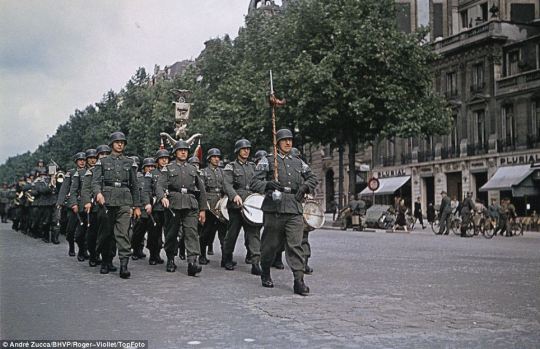
It is almost certainly a unique event in human history, one in which a ruthless and unscrupulous invader occupied a city known for its sophistication and liberality, declining to destroy it or even to exact physical damage on more than a minority of its citizens yet leaving it in a state of “embarrassment, self-abasement, guilt and a felt loss of masculine superiority that would mark the years of the Occupation. To this day, more than one visitor or foreigners living in Paris are struck by how sensitive Paris and Parisians remain about the role of the city and its citizens in its most humiliating moment of the twentieth century.
Indeed bringing up the subject with French friends, my French partner’s family, or even relatives (by marriage - such as a French aunt married to my Norwegian uncle or the French partners of my cousins here in France) is like walking on egg shells. It brings up too many distant ghosts for many families. Nearly every household has a story. It can be one of resistance or one of collaboration or (more likely) one of passive indifference and acceptance.
And yet I remain fascinated and intrigued partly because of historical interest and partly out of curiosity about the human condition under stress. In Britain - despite the trauma of daily bombardment from German bombers - the country was never invaded. And so whilst war brings out the best and worst in people, it was altogether a different experience to the one experienced by mainland European countries. I don’t think we British truly have understood of life was really like under occupation and the choices people are willingly or not made just to survive the war.

The history of Paris from 1940 to 1944 gives the lie to the old childhood taunt: Sticks and stones may break my bones, but names will never hurt me. The Germans for the most part spared Parisians sticks and stones (except, of course, Parisians who were Jewish), but the “names” they inflicted in the form of truncated freedoms, greatly reduced food and supplies, an unceasing fear of the unexpected and calamitous, and the simple fact of their inescapable, looming presence did deep damage of a different kind. It traumatised the city and its inhabitants in ways very little understood by others, especially Britain.
The carefully curated image of French resistance against the Nazis has been asked to serve critical functions in that nation’s collective memory. The manufactured myth served to postpone for a quarter of a century deeper analyses of how easily France had been beaten and how feckless had been the nation’s reaction to German authority, especially between 1940 and 1943. And yet the myth of a universal resistance was important to France’s idea of itself as a beacon for human liberty. It was also badly needed as an example of the courage one needed in the face of monstrous political ideologies.
There remained the ethical questions that would haunt France for decades: Which actions, exactly, constitute collaboration and which constitute resistance? It is still asking these questions over 70 years later. But behind such question lies a deeper and more haunting question of moral culpability that many are quick to throw responsibility - along with their own shame of inaction - onto others but not look inwards at their own guilt and passivity.

But what about the occupiers? What did they feel? Were the German Wehrmacht during the day simply tourists sitting in cafes, dining on gourmand food, buying silk stockings and the latest fashions for their wives back home and by night drinking and debauching on the cultural and seedy delights of Paris?
Moral culpability is a question that Ernst Jünger, the celebrated German author, never asks himself of his time as a German officer in Paris. But culpability is a question that looms large after reading the war journals of Ernst Jünger from 1941-1945, now published by Columbia University Press as A German Officer in Occupied Paris: The War Journals, 1941-1945. It should have been re-titled as a ‘A German writer pre-occupied by Parisian night life and his navel’.
Ernst Jünger (1895-1998) was what is sometimes called a “controversial” figure. A First World War hero who was wounded seven times, he was undoubtedly uncommonly brave. He also insisted that those who were less brave should play their part, forcing retreating soldiers to join his unit at gunpoint. His 1920 book Storm of Steel (In Stahlgewittern), recounting his war experiences and portraying war in a heroic light, made him famous. In the 1920s he became involved in anti-democratic right-wing groups like the paramilitary Freikorps and wrote for a number of nationalist journals. He remained aloof from the Nazis, however, and, while he boasted that he “hated democracy like the plague”, was more of a nationalist than a racist.
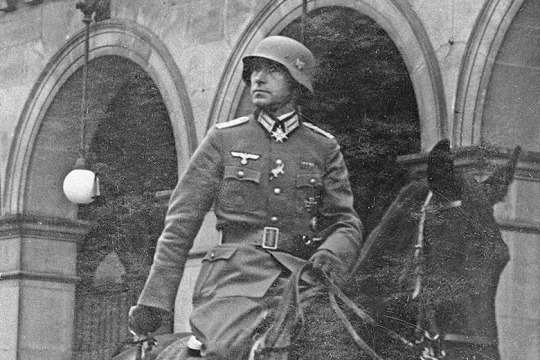
Jünger spent much of the Second as an officer stationed in Paris, where these war journals are an almost daily record of the views and impressions of a well-read literary figure, entomologist, and cultural critic, now available for the first time in English translation in A German Officer in Occupied Paris. Posted in white-collar positions in Paris with the German military during the 1940-1944 occupation.
Nazi Germany produced two wartime diaries of equal literary and historical significance but written from the most different perspectives conceivable: Victor Klemperer and Ernst Jünger. Victor Klemperer wrote furtively, in daily dread of transport to an extermination camp, a fate he was spared by the firebombing of Dresden. Ernst Jünger, by contrast, had what was once called a “good war.” As a bestselling German author, he drew cushy occupation duty in Paris, where he could hobnob with famous artists and writers, prowl antiquarian bookstores, and forage for the rare beetles he collected. Yet Klemperer and Jünger both found themselves anxiously sifting propaganda and hearsay to learn the truth about distant events on which their lives hung.
For English-speaking readers who do not know his work, A German Officer in Occupied Paris shows the many sides of this complex, elusive writer.
In the judicious and helpful foreword by San Francisco-based historian Elliot Neaman, who says. “Like a God in France, Jünger operated on the edge of politics in Paris, rather like a butterfly fluttering among the resistors and collaborators. He didn’t trust the generals, who had taken a personal oath to Hitler, to be able to carry out a coup.”

Jünger had visited the city prior to the war, was fluent in French, and now had the contacts and the time to become even more familiar with the French capital. During his stay in Paris he met painters such as Georges Braque and Pablo Picasso as well as literary figures including Louis-Ferdinand Céline and Jean Cocteau, all of whom figure in his Journals, which reflect a view of Paris that had become a tourism mecca during the late 19th and early 20th centuries.
To Jünger, Paris was “a capital, symbol and fortress of an ancient tradition of heightened life and unifying ideas, which nations especially lack nowadays” (30 May 1941). After wandering around the Place du Tertre, near the Sacré Cœur Cathedral in the Montmartre section of Paris, he wrote: “The city has become my second spiritual home and represents more and more strongly the essence of what I love and cherish about ancient culture” (18 September 1942). At the same time, Jünger was aware of the “shafts of glaring looks” with which he was sometimes viewed by locals as he wandered in uniform through the city’s streets and byways (18 August 1942, 89, and 29 September 1943).

A German Officer in Occupied Paris is divided into four parts: the “First Paris Journal,” his writings from 1941 through October 1942; “Notes from the Caucasus,” continuing his account through February 1943; the “Second Paris Journal,” covering the period from his return to Paris through the liberation of France in the late summer of 1944; and finally the “Kirchhorst Diaries,” his account of having been placed in charge of the local militia [Volkssturm] and his reflections on the bombings and imminent defeat of Germany.
The “First Paris Journal” reflects the comings and goings of a German officer and writer happy to rediscover Paris at a time when it seemed clear that Germany had won the war and would dominate France and perhaps Europe indefinitely. Closer physically to the fighting following his transfer to the East in October 1942, Jünger devoted greater attention to the fighting and the raw nature of the German-Soviet struggle in “Notes from the Caucasus.”
By the time he returned to Paris and began his “Second Paris Journal” in February 1943, the Germans had been defeated at Stalingrad and it had become increasingly evident that a titanic struggle loomed and that the Germans might well lose the war.
The final section, the “Kirchhorst Diaries,” is set against the backdrop of the Allied invasion of Germany, accompanied by intense bombing and the destruction of German cities and homes including Jünger’s own, and the seemingly countless numbers of civilian refugees seeking shelter and food. Through it all, Jünger continues his reading, including that of the Bible, his book collecting, and visits to antiquarian booksellers when possible, and his chats with various literary figures in Paris and, at times, in Germany.
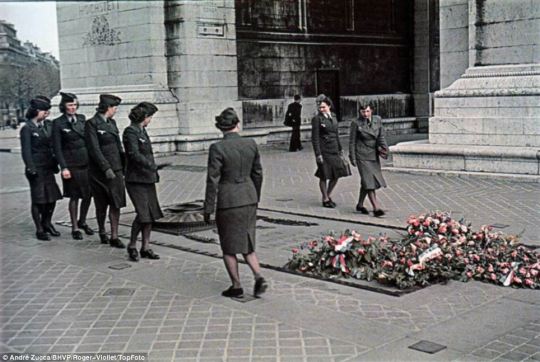
Much of the material in the Journals is introspective, with Jünger addressing his innermost thoughts and dreams. Snakes also appear with some frequency in the Journals, for example, in the entry of 13 July 1943, where during a restless night because of air raid sirens in Paris, he recalls having dreamt of dark black snakes devouring more brightly colored ones. In the Journal entry, he linked snakes back to primal forces incarnating life and death, and good and evil. This connection, he noted, was the reason people fear the sight of a snake, “almost stronger than the sight of sexual organs, with which there is also a connection” (13 July 1943). Following a conversation with the “Doctoresse,” the name that Jünger used for Sophie Ravoux, with whom he was intimate and had an affair in Paris, he described his own manner of thinking as “atomistically by osmosis and filtration of the smallest particles of thoughts.” His thought process, he explained, ran not according to principles of cause and effect but rather at the “level” of the vowels of a sentence, on the molecular level; “This explains why I know people who couldn’t help becoming my friends, even through dreams” (22 January 1944). Addressing Eros and sexual organs, Jünger added that he wished to study the connections between language and physique. Colours also had spiritual values, “Just as green and red are part of white, higher entities are polarised in intellectual couples—as is the universe into blue and red”.
Jünger’s position as an army captain gave him a panorama of the war that left no room for heroes. Violence became a grim leveller that made ideologies interchangeable. Germans on the eastern front were reading On the Marble Cliffs as a condemnation of Soviet Russia rather than of Nazi Germany. Hitler had unleashed a dehumanising force on the world, one that made Russians, Germans, the French Resistance and Allied pilots all look the same, locked in an escalating cycle of cruelty. Jünger witnessed Allied planes strafing screaming children in the streets, releasing bombs timed to explode while presents were handed out on Christmas Eve. Accounts drifted in of Parisian friends, who had once tried to transcend national boundaries with him through measured discussion in the salons, being harassed as collaborators. His summary of this second war could have been a reverse of the first: ‘Inactivity brings men together, whereas battle separates them.’

The picture of Jünger’s political views that emerges in his Journals, however, is a highly chivalric and military elitist one in which a small number of bold idealists, for lack of a better term, struggle against demos and technocracy, democracy and technicians, who are destroying the soul of an older European society. Writing while back home in Kirchhorst on 6 November 1944, following the expulsion of the Germans from France and walking around viewing the destruction wrought by the Allied bombs in Germany, he observed: “As I walked, I thought about the cursory style of contemporary thinkers, the way they pronounce judgment on ideas and symbols that people have been working on and creating for millennia. In so doing they are unaware of their own place in the universe, and of that little bit of destructive work allocated to them by the world spirit.”
He went on to criticise “the old liberals, Dadaists, and free-thinkers, as they begin to moralise at the end of a life devoted to the destruction of the old guard and the undermining of order.” Jünger then referred to Dostoevsky’s novel The Demons, in which the sons of Stepan Trofimovich “are encouraged to scorn anything that had formerly been considered fundamental.” Having destroyed their father, these “young conservatives,” now sensing “the new elemental power” of “the demos,” are then dragged to their deaths. In the ensuing chaos, “only the nihilist retains his fearsome power.” Jünger mentions Hindenburg, and the destruction of the conservatives by the Nazis is clearly implied (6 November 1944).
In August 1943, he described his political views as a combination of Guelph (relating to the medieval supporters of the Pope against the Holy Roman Emperor), Prussian, Gross-Deutscher (in support of a Greater Germany including Austria), European, and citizen of the world “all at once.” As he put it, “My political core is like a clock with cog wheels that work against each other.” However, he added: “Yet, when I look at the face of the clock, I could imagine a noon when all these identities coincide” (1 August 1943).

While violence raged all around, Jünger continued his secret diary, for publication after the war. This ended for him when American tanks rumbled through his village in April 1945, Jünger proclaiming that the deeper the fall, the greater the ensuing rise. Jünger survived investigation in the immediate postwar period and went on to become a grand old man of German literature, with a considerable following at home and abroad. A year before his death he was – as the phrase goes – received into the Catholic church. Having lived through a violent century he expired in his bed in his 103rd year.
The war journals is a highly nuanced, albeit self-made, picture of a human being in the middle of World War II, who is a flirtatious fascist, yet who apparently seems to care for other human beings, regardless of their so-called social strata or race. Take for example this entry dated Paris, 28 July 1942, “The unfortunate pharmacist on the corner: his wife has been deported. Such benign individuals would not think of defending themselves, except with reasons. Even when they kill themselves, they are not choosing the lot of the free who have retreated into their last bastions, rather they seek the night as frightened children seek their mothers. It is appalling how blind even young people have become to the sufferings of the vulnerable; they have simply lost any feeling for it. They have become too weak for the chivalrous life. They have even lost the simple decency that prevents us from injuring the weak. The opposite is true: they take pride in it.”
Having said that, I found some of the contents repugnant as Jünger, a devout entomologist, easily writes about finding a new insect while fires are burning all around Paris in 1943. Indeed Jünger paints himself as the detached botanist-scholar, determined to survive and help the world recover in peacetime. For him, the best way to avoid being sucked into the vortex of violence was to disconnect from emotion and group mentalities: to feel nothing and be on no one’s side, only bearing witness. A detached eye in the storm.
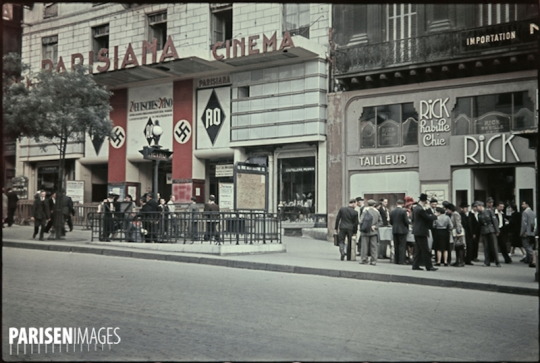
His journal is a hedonistic carousel, as he frequented theatres, literary salons and Left bank bookstalls along the Seine, as well as having a meeting of artistic minds with Picasso, Braque and Cocteau. It’s possible to make your way through this collection and have a grand ole time, enjoying the moments when Jünger encounters celebrities like Picasso, or when Monet’s daughter-in-law gives him the key to the gardens at Giverny for his own private tour, or when he describes another gourmet meal with the well-heeled of Parisian society: “The salad was served on silver, the ice cream on a heavy gold service that had belonged to Sarah Bernhardt.” Jünger relishes his name-dropping and his contacts with the upper crust. He sees himself as one of the Übermenschen: “In this country the superior man lives like Odysseus, taunted by worthless usurpers in his own palace.”
The author himself gets lost in the fog of mystic self regard as all artistic writers are prone to do and confesses that in an entry labeled 26 Aug 1942: “At times I have difficulty distinguishing between my conscious and unconscious existence. I mean between that part of my life that has been knit together by dreams and the other.”
To read the diary in chronological order is to realise that Jünger’s submersion in art and literature was his way of preserving his humanity while serving the machinery of a lethally violent state. One way of doing this was through a voracious program of reading, chiefly literature and history, often reading two or three books at once. One is not surprised at the German and French reading but at the abundance of English writers, whom he read in the original—Melville, Joyce, Poe, Conrad, Kipling, Thomas Wolfe, Thornton Wilder, the Brontës, ad infinitum. The range is also remarkable. Jünger pivots from the 1772 fantasy Diable amoureux to a biography of the painter Turner to Crime and Punishment. And throughout the entire diary, one finds him reading the Bible, cover to cover, which he began shortly after his posting to Paris.
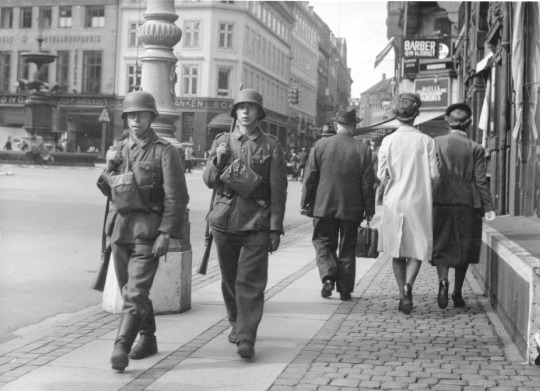
Over and over again I had to remind myself this is a diary. Diaries by definition have one eye on self serving posterity.
So it’s not surprising that Jünger would tweak reality to create this image of poetic detachment. With his constant stories of indulgence in Paris, the reader might assume he had no job while he was there. In fact he was censoring letters and newspapers, a cog in the Nazi machine he so despised. He omits anything that would make him appear a villain. An ongoing extramarital affair in Paris is barely hinted at. But neither does he try to look a hero, omitting how he passed on to Jews information of upcoming deportations, buying them time to escape.
Should he have continued to enjoy his life as a flâneur for so long? He had solid proof of what was going on, debriefed as he was on the mass shootings and death camps on the eastern front. Throughout his career he had railed against inertia, lauding men of action who sacrificed themselves for a just cause. And then such a cause presented itself. Jünger’s colleagues in Paris were involved in the Stauffenberg plot of 1944, and asked for his help. He was one of the most influential conservative voices in Germany at the time, one of the few that Hitler’s followers might have taken seriously. Yet he refused to commit himself during the chaos. Instead, Jünger waited for evil to destroy itself: a fireman who fought the blaze by waiting for the building to burn down. As usual, he inhabited a grey area.

Jünger remains a problematic figure of controversy, perhaps even emblematic of the aged old question how does one respond to brutish evil? There are no easy answers. Addressing the French who collaborated with Germany during the war Robert Paxton, a well regarded historian of Vichy France wrote, “Even Frenchmen of the best intentions, faced with the harsh alternative of doing one’s job, whose risks were moral and abstract, or practicing civil disobedience, whose risks were material and immediate, went on doing the job. The same may be said of the German occupiers. Many of them were “good Germans,” men of cultivation, confident that their country’s success outweighed a few moral blemishes, dutifully fulfilling some minor blameless function in a regime whose cumulative effect was brutish.”
Was Jünger one of those they called a ‘good German’? Eating sole and duck at the famous Tour d’Argent restaurant, while gazing down at the hungry civilians in the buildings below was the choice Jünger made. In his 4 Just 1942 diary entry he wrote, “upon the grey sea of roofs at their feet, beneath which the starving eke out their living. In times like this - eating well and much - brings a feeling of power”.
We are always told to speak truth to power. Before we can speak one must think. But thinking truth to power is never enough in itself unless one acts out truth to power. Words without action is nothing. So the question one has to ask even as one reads from the detached safety of distance and time: how would one act in his shoes or indeed a Frenchman’s shoes?
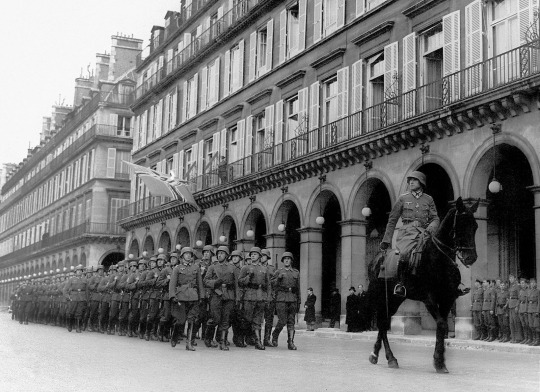
More than anything, the diary raises, for me at least, the question of moral culpability. It’s impossible to tell what Jünger was really thinking, and so perhaps one tantalising aspect of these war journals is psychological more than anything else. All this stuff is swirling around his life but we hear about the harmless social fluff for the most part. For example, he notes “In Charleville, I was a witness at a military tribunal. I used the opportunity to buy books, like novels by Gide and various works by Rimbaud.” I wanted to hear about the tribunal, but alas, it vanished into Jünger’s damn book buying.
And yet if you judge Jünger by his diary entries alone then it would be very easy to find him guilty. But diaries conceal as much as they reveal. For all the criticism that Jünger has served up a self-serving exculpatory diary, the truth is that he leaves his most selfless acts unmentioned. It is known that he gave advance warning to Jews facing deportation: The writer Joseph Breitbach was one, as he subsequently confirmed, and Walter Benjamin was possibly another.
None of this, for obvious reason, could be committed to paper, nor could the names of Adolf Hitler or any of his henchmen. Instead, their appearances are marked by Jünger’s felicitous code names. Joseph Goebbels, the Nazi chief propagandist, is “Grandgoschier,” a character from Rabelais’s Gargantua and Pantagruel meaning “Big Throat.” SS Chief Heinrich Himmler is “Schinderhannes,” the name of a notorious German highwayman but also a pun on horse knacker. And Hermann Goering is simply “Head Forester,” citing the most fatuous of his many official titles.
Jünger thought a great deal about the mystic and symbolic power of sounds, and he reserved his most apposite pseudonym for Hitler, “Kniébolo,” a name that is at once menacing and absurd. It suggests a kneeling demon (Diabolos), a leitmotif of the diary as Jünger became ever more convinced of Hitler’s essentially Satanic character- in the literal biblical sense.

So grey areas get more grey when we either try to step back and be detached to render a verdict on Jünger or if we step into his shoes to get inside his head. This is the limitation of a secret and coded diary, no matter how scrupulously written and how fascinating they are to read. Diaries are written for oneself or an imagined other; they play on the satisfactions of monologue. Letters are shaped by the contingencies of distance and time between writer and recipient; they become over time scattered in various places and must be "collected" to form a single body of writing.
Diaries are shaped by moments of inspiration but also by habit; they are woven together by a single voice and usually are contained between covers. Diarists play with the tension between concealing and revealing, between "telling all" and speaking obliquely or keeping silent. Like letter writing, diarists inscribe the risks and pleasures of expression and trust. The diary is an uncertain genre uneasily balanced between literary and historic writing. The diary belongs to the woman where history and literature overlap. So it’s easy to conclude that we will always have ambiguity and tension between these two polar opposites.
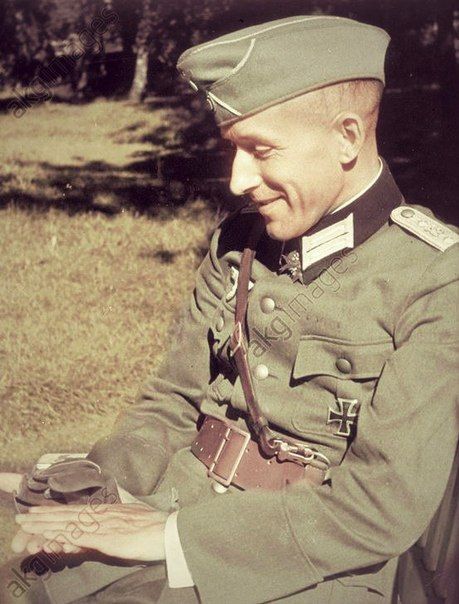
After 1945, Jünger again withdrew into private life, but continued to publish. Seclusion encouraged attention. His reputation grew. Scholarly editions appeared. In three last decades, doubters aside, he enjoyed growing recognition, travelled the world, deepened his knowledge of nature and voiced concern about human damage to the planet. Jünger poured out books late into his nineties. By then he had swept Germany’s top literary prizes and been visited in his Swabian retreat by the statesmen of Europe, including Helmut Kohl and François Mitterrand.
Jünger’s experience of life did little to dent his loathing of liberalism and democracy. On a country walk along a bomb-pitted road near his home late in 1944, Jünger indulges a moment of conservative relish, telling himself that it is liberals who are to blame for all that has befallen. How wonderful it is, he writes sarcastically, “to watch the drama of the old liberals, Dadaists and freethinkers, as they begin to moralise at the end of a life devoted completely to the destruction of the old guard and the undermining of order”. “Blame the liberals!” was the reactionary’s charge at birth (there is a profound difference between true conservatism and the extreme reactionary). It hobbled the Weimar Republic and bedevils politics today. Politically, he had learnt nothing. Today Western Europe society is eating itself inwards through the corrosive influence of the woke-ness of cultural Marxism and the conservative now finds himself/herself in the sweetly ironic position of defending the tenets of true liberalism.
For English-speaking readers who do not know his work, A German Officer in Occupied Paris shows the many sides of this complex, elusive writer. These diaries are invaluable about the man and his times. Jünger is nowadays probably less read than read about. So these war journals are to be welcomed and to be read with great interest.

For some these journal entries alone will still provide material to debate the moral choices made - and evaded - by Jünger. To critics, Jünger participated too much and judged too little. To defenders, he was indeed on the hard right, but no fascist and, besides, his prose was what mattered, not his politics. Not to pity Jünger’s personal travails would be defective. Not to respond to his prose would be deaf. But all of us can ponder Jean Cocteau’s final verdict, who liked Jünger and considered him a friend but whose aloofness troubled him: “Some people had dirty hands, some had clean hands, but Jünger had no hands.” Jünger may have washed his hands of his time in Paris but the hand of history forever tapping on his shoulder is less forgiving.
#treat your s(h)elf#books#review#reading#ernst junger#world war two#war#paris#france#history#germany#nazi germany#resistance#cocteau#collaboration#diaries#journals#culture#society#occupation
68 notes
·
View notes
Photo




It seems that we have our first look at the second quarter already (a few weeks earlier than normal). Introducing Kamen Rider Thouser, presented by Zaia!
With two Rise Keys: Perfect Rise! Kamen Rider Thouser transforms by inserting the Amazing Caucasus Progrise Key and the Awaking Arsino Zetsumerise Key into the Zaia ThousanDriver.
To transform, insert the Zetsumerise Key into the Zaia ThousanDriver: “Extinction evolution!”. Then activate the Progrise Key! By pressing the button, the key automatically springs open: “Break horn!”. Next, insert the Progrise Key: “Perfect Rise!”
The belt’s door will then open, which reveals the motif in the centre: “As five horns meet, the golden soldier THOUSER is born. Presented by ZAIA.” The five horns are the Caucasus beetle’s three horns and the extinct Arsinoitherium’s two horns, which combine to form Thouser’s mask.
Press the Progrise Key to activate a finishing move: “Amazing! Break!” Optionally, you can insert any Progrise Key into the ThousanDriver to perform a finisher attack: “Breakrise! Progrise Break!”
Kamen Rider Thouser’s personal weapon is the Thousand Jacker. Pull on the end of the grip to activate its finisher, Data Jack: “Jackrise!” Or, insert a Progrise Key to activate a finisher: “Progrise Key confirmed. Ready to Break.”
The ThousanDriver and Thousand Jacker will release in late December. Two Progrise Keys for Kamen Rider Zi-O and Kamen Rider Decade will also be released in January.
167 notes
·
View notes
Video
instagram
The Malaysian Chalcosoma caucasus beetle, of the Scarab family.
#beetle#scarab#malaysia#insects#flying#wings#science#chemistry#physics#biology#math#engineering#universe#cosmos#nature#earth#evolution#species#animals#loud#bugs#planet earth#wildlife#asia#south east asia#hot#travel#adventure#museum#zoo
514 notes
·
View notes